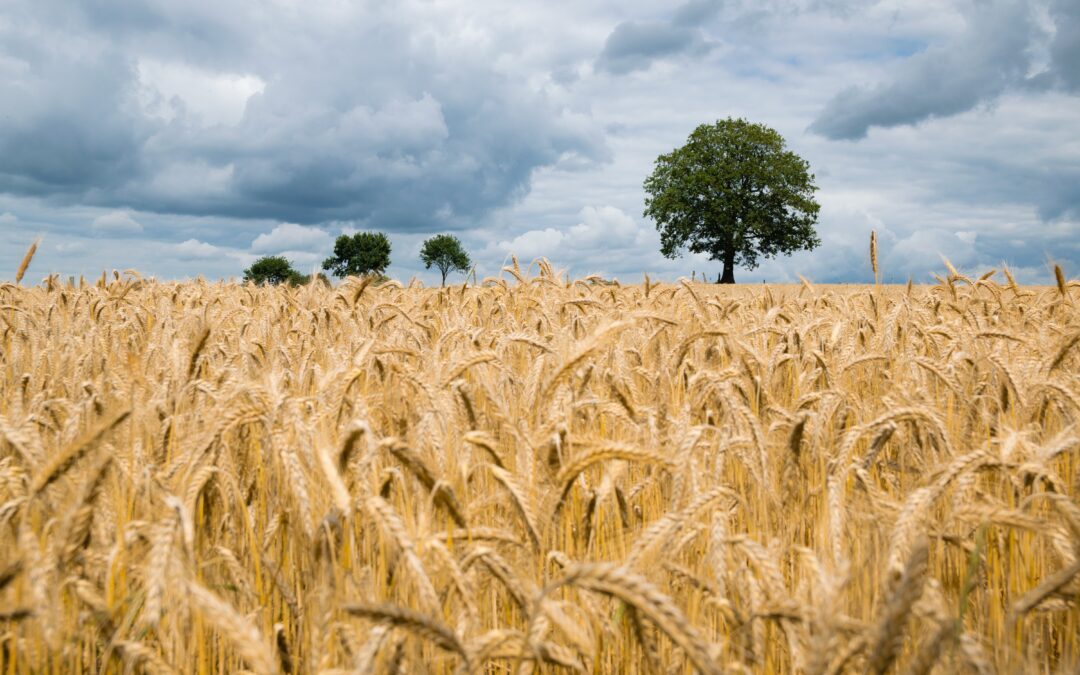Poland has ordered checks on all grain importers after prosecutors launched an investigation into reports that wheat from Ukraine meant for industrial purposes had been sold in Poland for human consumption.
The issue of the Ukrainian grain exports, which were meant as an economic lifeline to Kyiv following Russia’s invasion, has recently caused controversy in Poland, where farmers say they have pushed down prices. Those protests led last week to the resignation of the agriculture minister.
The new minister, Rober Telus, himself a farmer, announced today that he had ordered an inspection of all companies in Poland importing grain to ensure that they “meet Polish and European standards”.
Minister @RobertTelus: Podjąłem decyzję o tym, że zboże, które jest magazynach na terenie Polski 🇵🇱 będzie kontrolowane. Nie ma zgody, by ktokolwiek mógł zarobić na zdrowiu Polaków. pic.twitter.com/iZpWIETDvw
— Ministerstwo Rolnictwa i Rozwoju Wsi (@MRiRW_GOV_PL) April 12, 2023
That came after the Rzeczpospolita daily yesterday reported that so-called “technical wheat” from Ukraine had been falsely sold as Polish edible wheat to the largest flour producers in Poland and that prosecutors have opened an investigation into the case.
According to the newspaper, three Polish companies bought wheat declared as Polish from firms near the town of Hrubieszów, on the border with Ukraine. Between September and November 2022, they bought as much as 1,025 tonnes of mislabeled wheat.
Technical grains have specific characteristics, such as higher starch, protein or other content, which are more useful for industrial uses than for food production. They can be used, for example, in the production of biofuels, packaging materials or paints, as well as in cosmetic or pharmaceutical products.
One of the companies, which remained unnamed at the request of prosecutors, told Rzeczpospolita that it has not yet processed the grain into flour but has tested it for pesticides and mycotoxins.
“The parameters are within standards, but we still can’t and don’t want to use it,” the company said. “We have been scammed, we have requested the seller to exchange for Polish wheat. We are waiting. The companies have agreed to exchange it, but we will see how it turns out.”
🔴TYLKO U NAS. Zboże z #Ukraina: Oszukane polskie młyny https://t.co/B6vlkoJ7kA
— Rzeczpospolita (@rzeczpospolita) April 11, 2023
Speaking today, Telus said that there would be “random checks at various companies” to ensure “that we have good-quality grain that guarantees the safety of Poles”.
He added that he would be speaking with justice minister Zbigniew Ziobro, who is also public prosecutor general, “about serious sanctions against those who wanted to cheat Poles for [their own] gain”.
“For me, it doesn’t matter if someone is associated with this side or the other – everyone who wanted to cheat will be punished for it,” continued Telus, hinting at a report by news website Wirtualna Polska that some of the firms importing Ukrainian wheat are linked to figures from the ruling Law and Justice (PiS) party.
Wśród firm sprowadzających zboże z Ukrainy jest spółka Wipasz, której prezesowi doradzał do niedawna Marek Zagórski, wówczas poseł PiS. Jest też Cedrob, którego prezes przynajmniej do ubiegłego roku był członkiem PiS. Tekst @SzJadczak @wirtualnapolska https://t.co/f8FaAqfPoT
— Paweł Kapusta (@pawel_kapusta) April 11, 2023
On Friday last week, Telus held talks with his Ukrainian counterpart, Mykola Solskyi, after which they both confirmed plans to temporarily halt the import of grain from Ukraine to Poland. The details are expected to be concluded this week.
Yesterday Telus also announced he will “ask the ministers of the five frontline [EU] countries to jointly make a strong case for changing duty-free and quota-free grain imports from Ukraine”, adding that efforts must be made to spread the incoming products from Ukraine evenly across the EU.
His deputy, Ryszard Bartosik, speaking at the same briefing, also announced that the government’s strategic reserves agency (RARS), with the agreement of the European Commission, would allocate 600 zloty million (€128.81 million) for the emergency purchase of grain from the market.
Poland has announced plans to limit the entry of Ukrainian grain onto its market and has called for similar action from the EU.
The issue has caused protests by Polish farmers, who say that the inflow of produce from Ukraine is lowering prices https://t.co/6JHRR4TjVM
— Notes from Poland 🇵🇱 (@notesfrompoland) March 30, 2023
Main image credit: Kai Pilger / Pexels

Alicja Ptak is deputy editor-in-chief of Notes from Poland and a multimedia journalist. She has written for Clean Energy Wire and The Times, and she hosts her own podcast, The Warsaw Wire, on Poland’s economy and energy sector. She previously worked for Reuters.




















